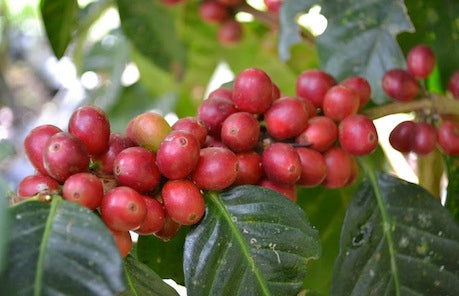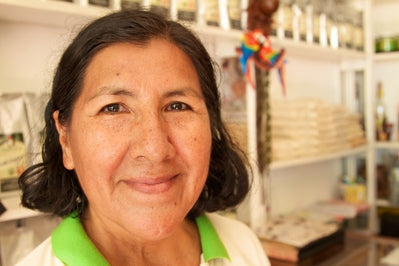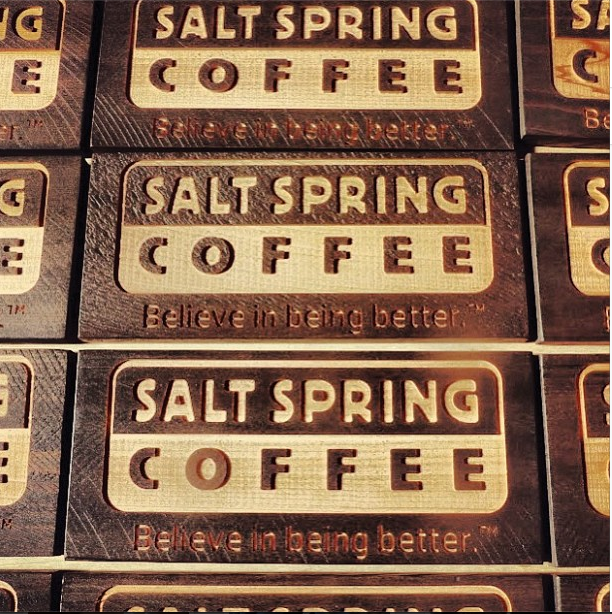
Coffee Processing 101
The journey from seed to cup is a long and interesting one. Processing coffee, or turning cherries into dried coffee beans, is a fundamental step in that journey, yet it is sometimes overlooked or misunderstood.
Picture yourself atop a lush, tree-covered hillside, with a large basket full of carefully hand-picked cherries. This is where coffee processing begins. The beans from that day’s harvest will eventually find their way into your grocery store, and then your cup.

The method of processing significantly affects a coffee bean’s flavour and character. There are two types of processing, known as “washed” and “natural” processing. At Salt Spring Coffee, we buy varietals of Arabica processed using either the washed or natural method.
Washed coffee (sometimes referred to as wet pulping) begins by transferring whole, ripe coffee cherries into a large tank of water where the cherries are washed and sorted. Ripe cherries are spotted easily because they sink to the bottom of the tank. The soaked cherries are then transferred to a pulping machine where their skin and pulp is gently removed by cycling them through a heatless, dryer-like machine. From here, the now pulp-free, green coffee beans undergo a 12-hour fermentation process before they are finally set out to dry in the sun on a drying patio.

Washed coffee beans tend to produce a clean, more traditional cup of coffee. Today, the vast majority of Latin American coffee producers apply a washed process to coffee, as do many African countries.
The following video explores the washed processing method, of our newest Byron’s Maracaturra coffee, in more detail:
Natural processing (sometimes referred to as dry processing) is one of the oldest and most traditional ways to process coffee. Whole coffee cherries are dried on a raised bed or patio with full exposure to the sun for approximately 10 to 14 days. This allows the coffee cherry’s fruity flavour to seep into the green coffee bean inside. To prevent spoiling, the beans are raked and turned throughout the day, and covered if it rains.Once the coffee cherry is dry, it is processed gently to remove the dry fruit casing from the coffee bean. The result is a beautiful green coffee bean with intense fruit flavour given to it naturally by the fruit in the heat of the sun.
Today, natural processing is usually applied in Ethiopia and Brazil, because the modern machinery and water involved in the washed process can be scarce in these two coffee-growing regions. Naturally processed coffee tends to produce a sweeter, fruitier cup than washed coffee. The demand for naturally processed coffee is on the rise so we’re starting to see some Latin American countries, which are traditionally ‘washed’ coffee countries, produce some very beautiful and unique naturals.
If you liked this post, visit Byron’s Maracaturra or learn more about our partner and pioneer in coffee sustainability, Byron Corrales.
The post Coffee Processing 101 appeared first on Salt Spring Coffee.


